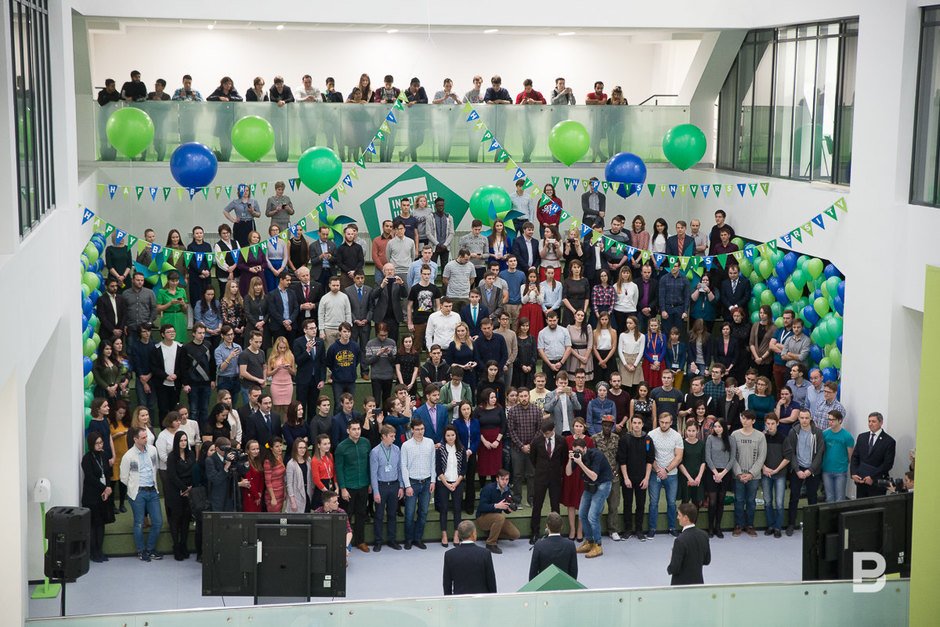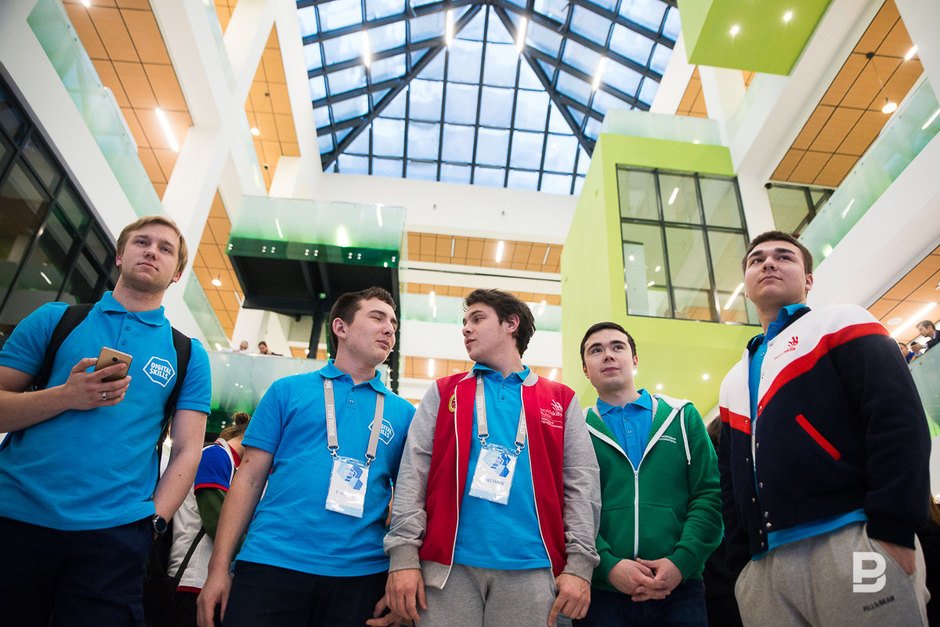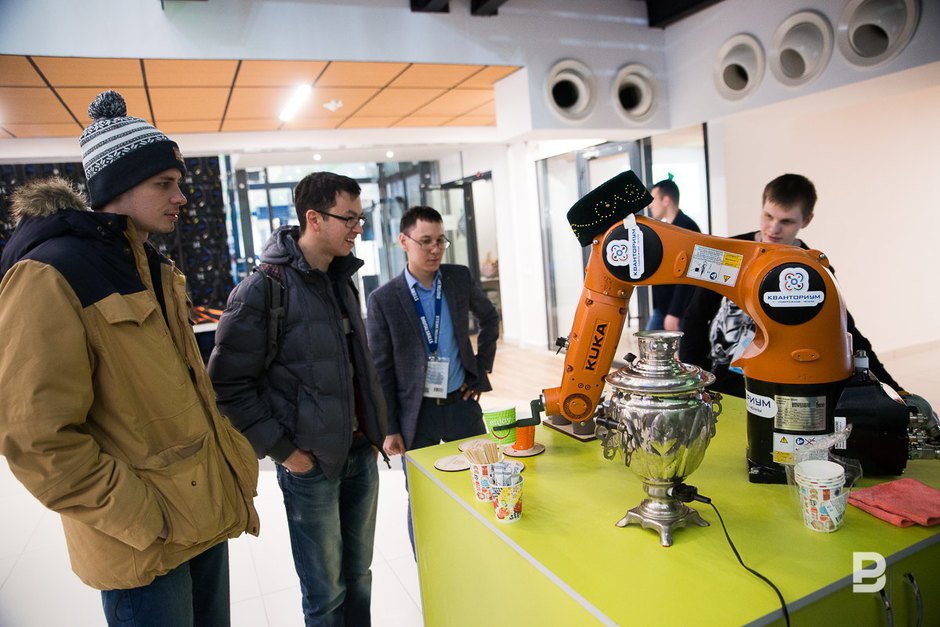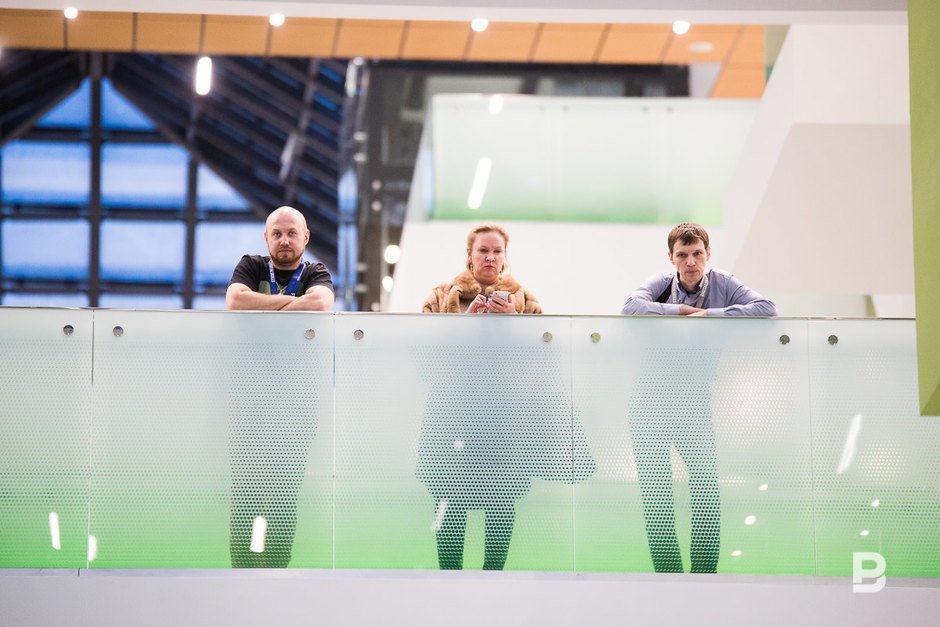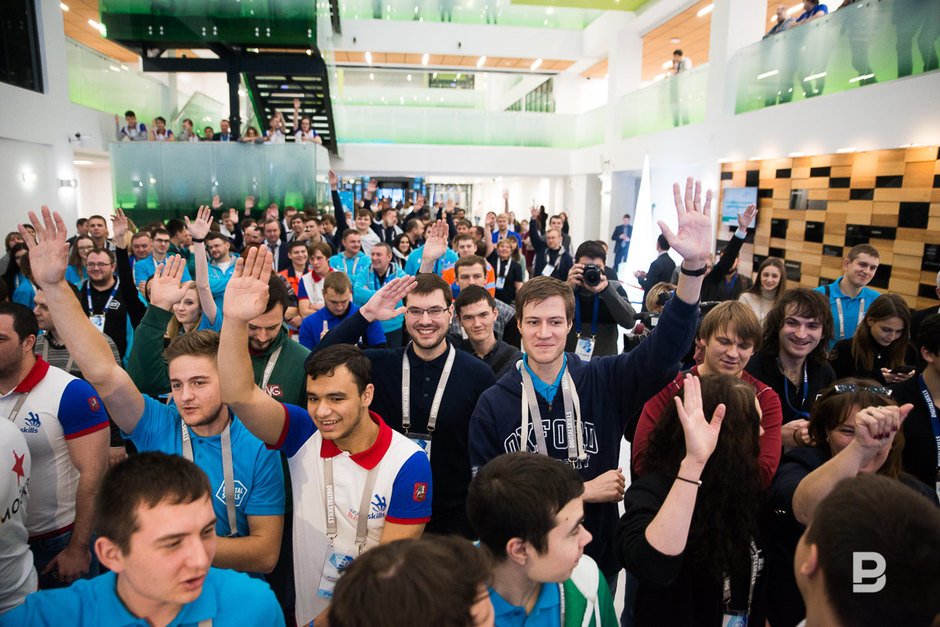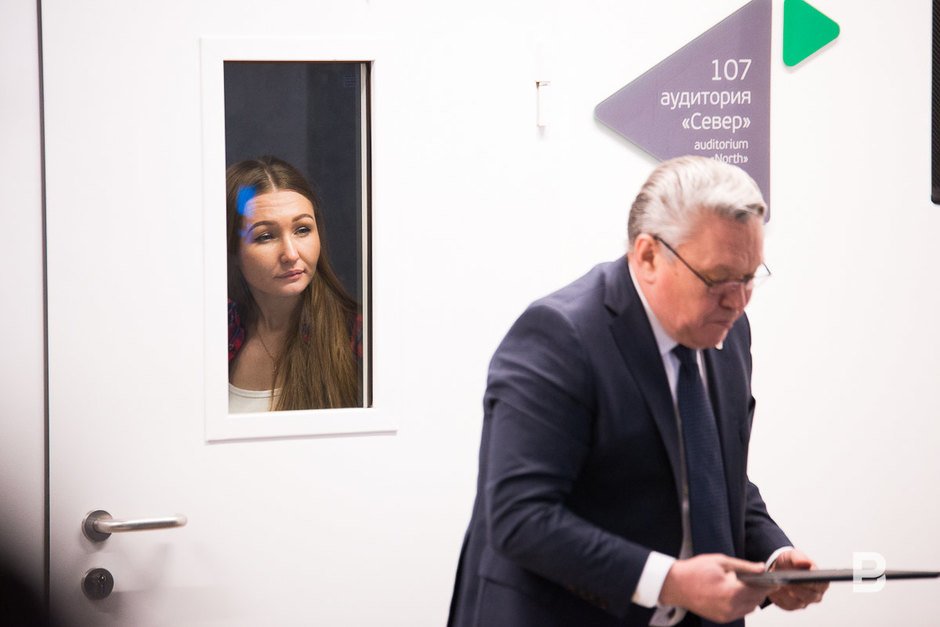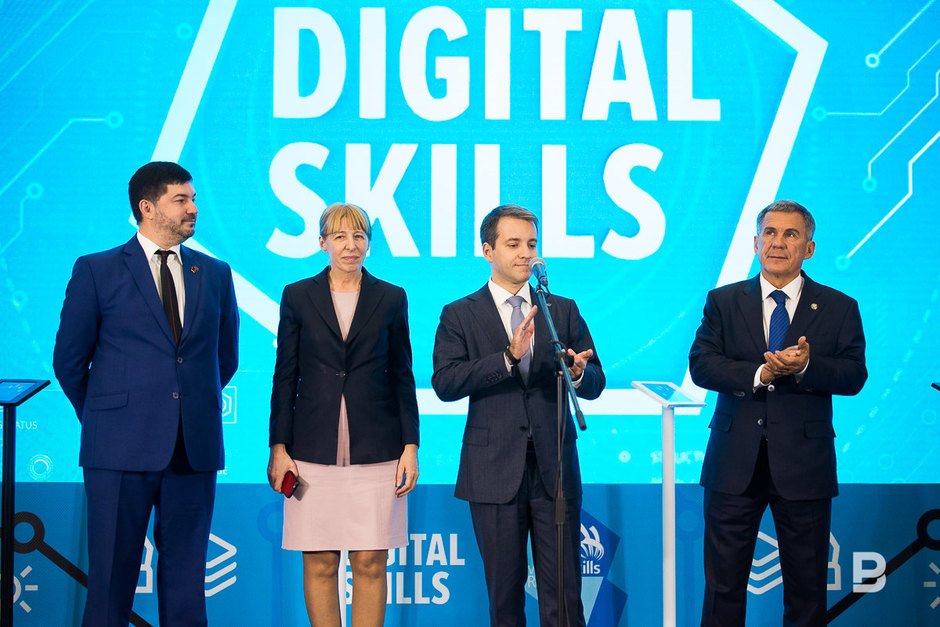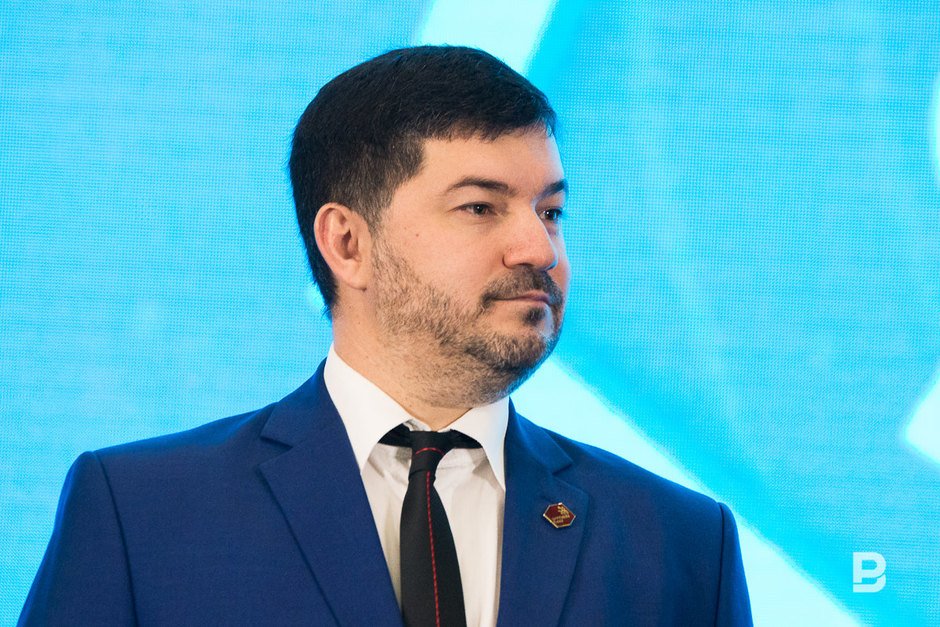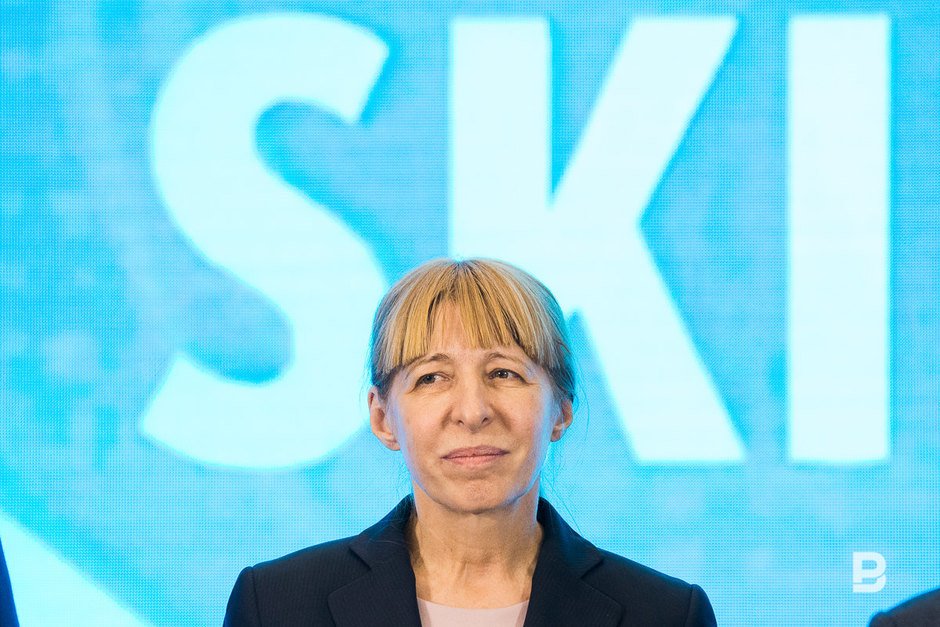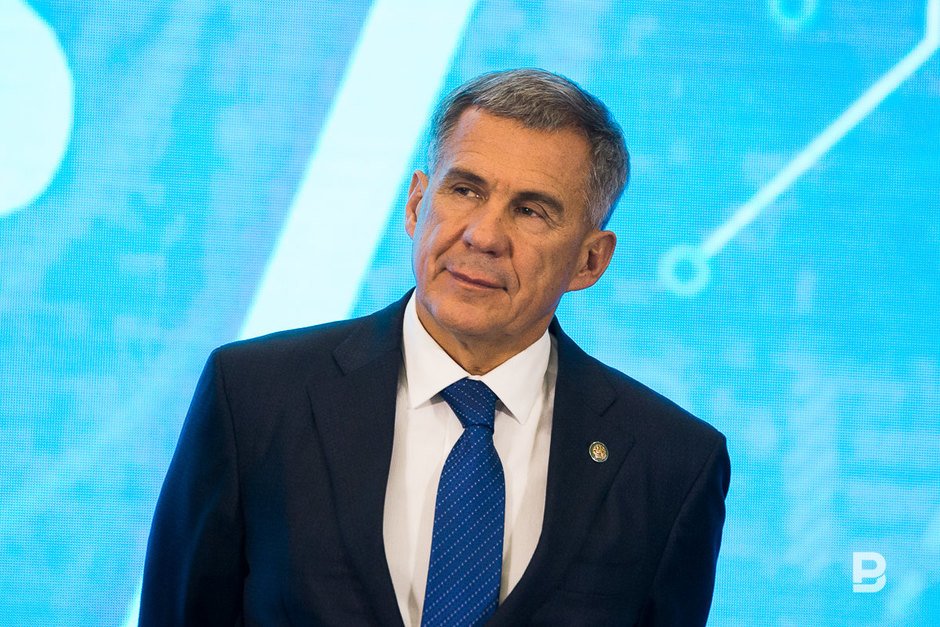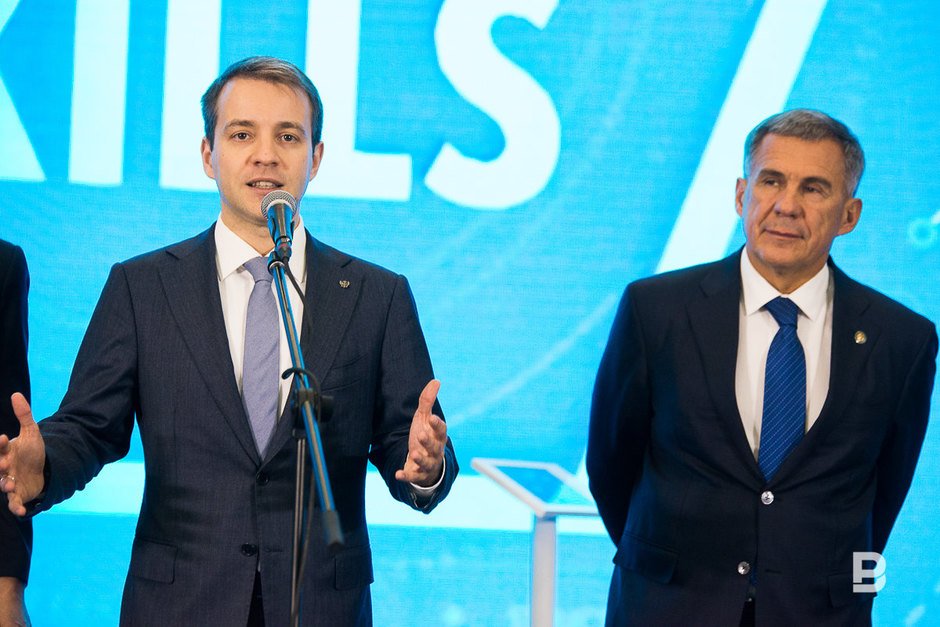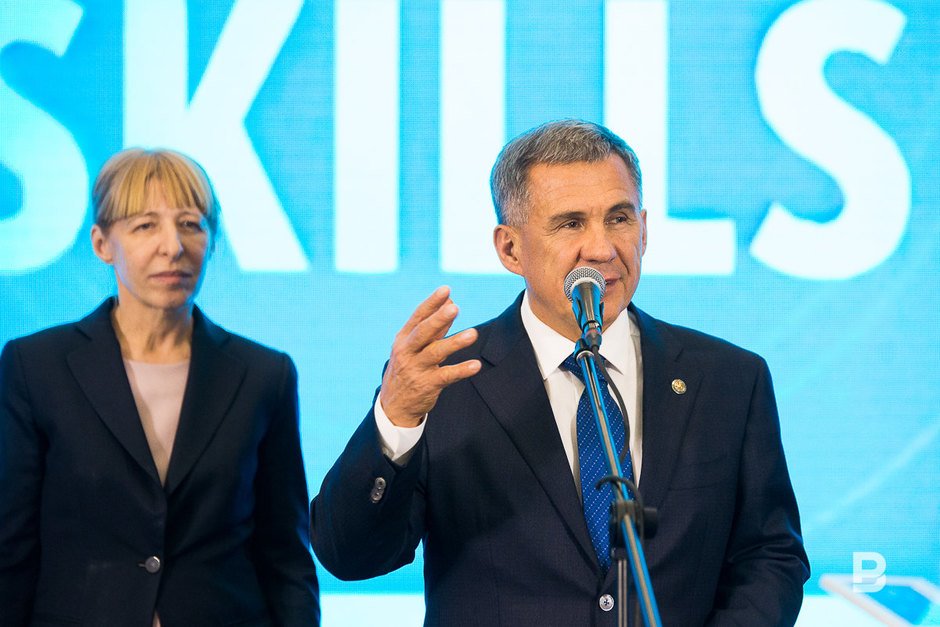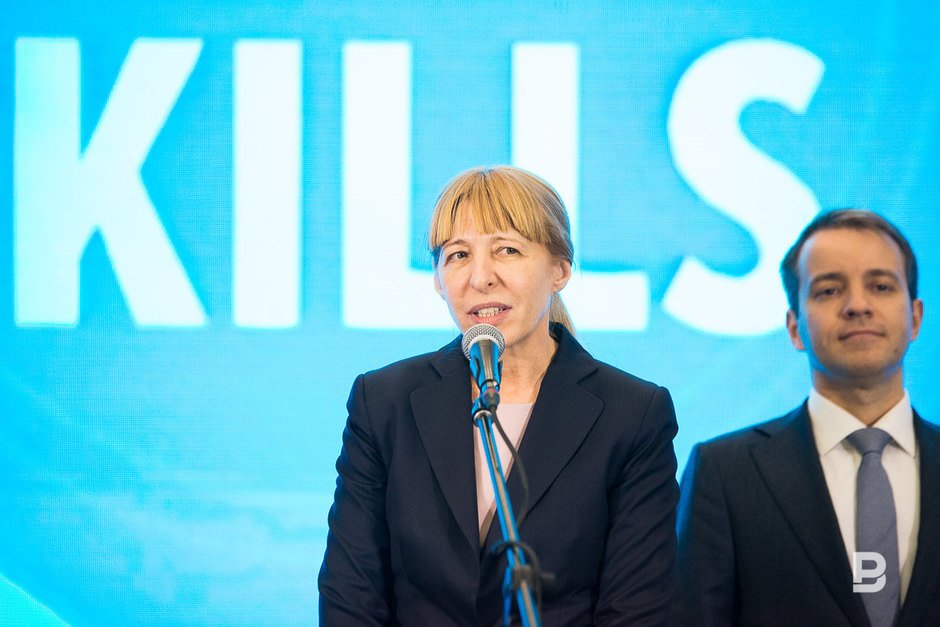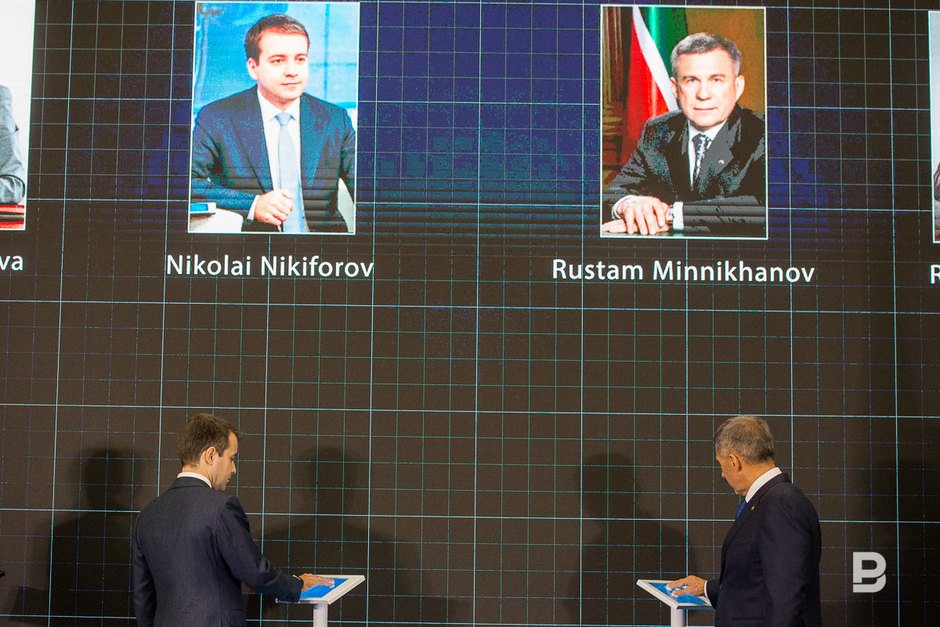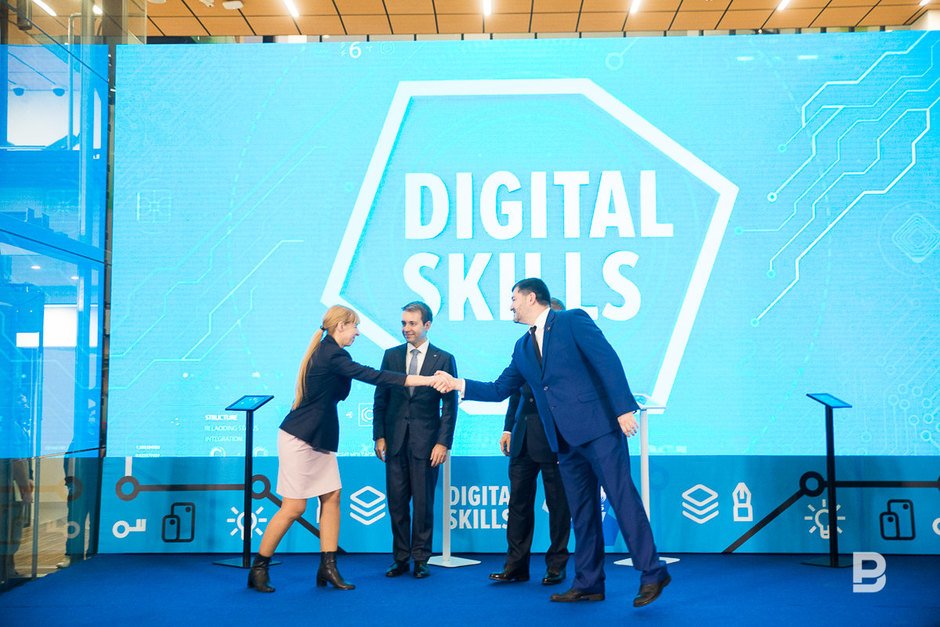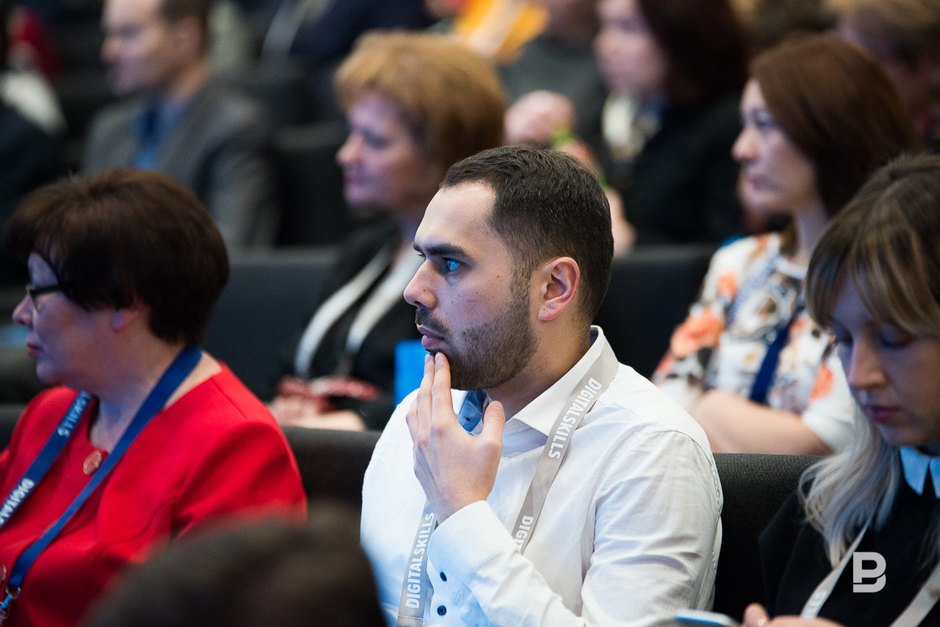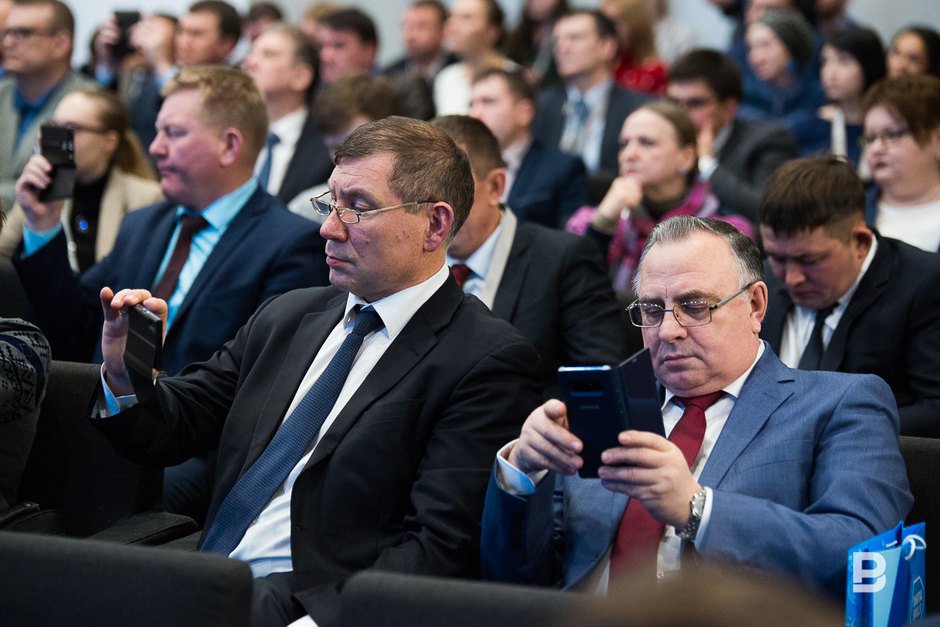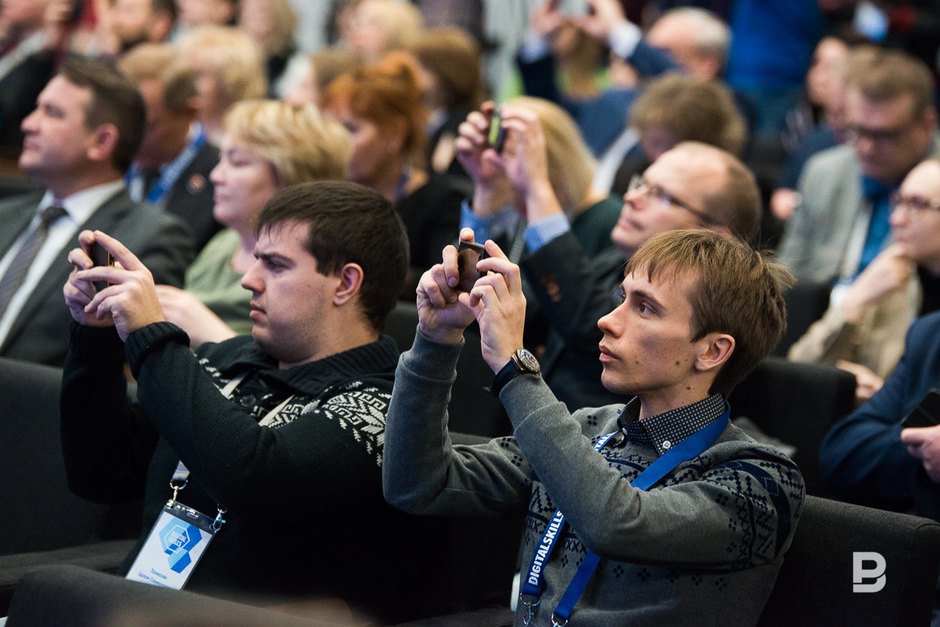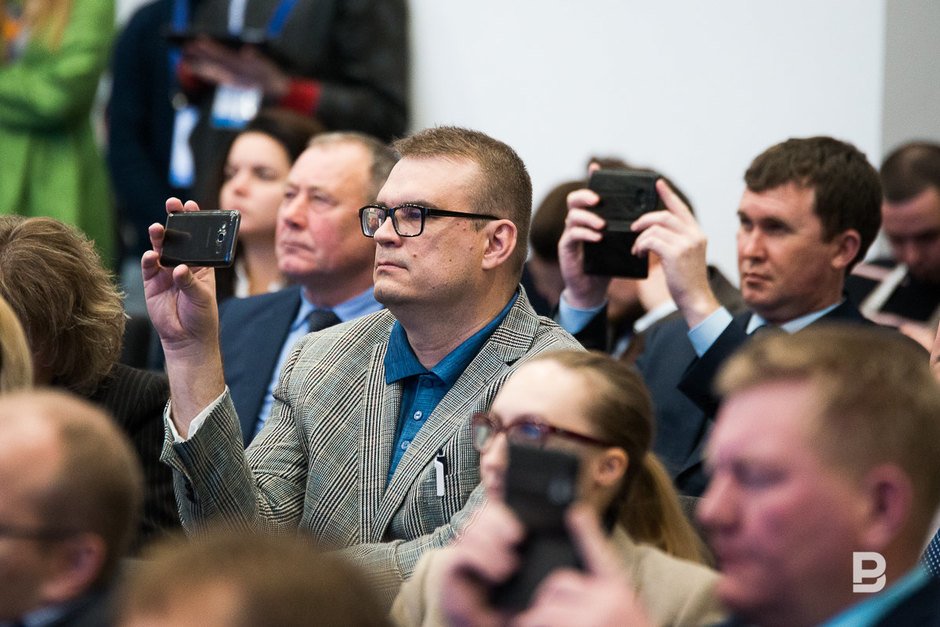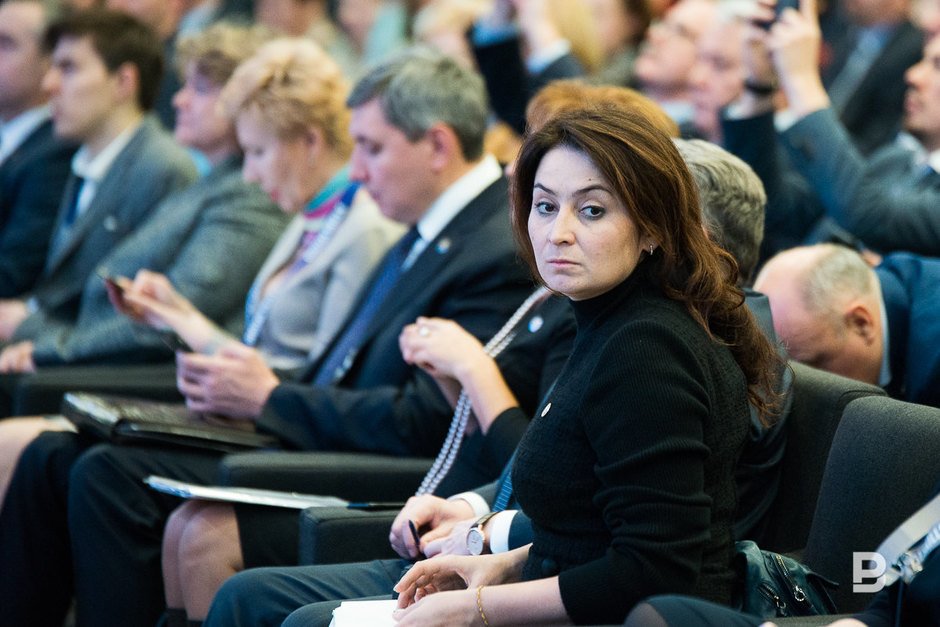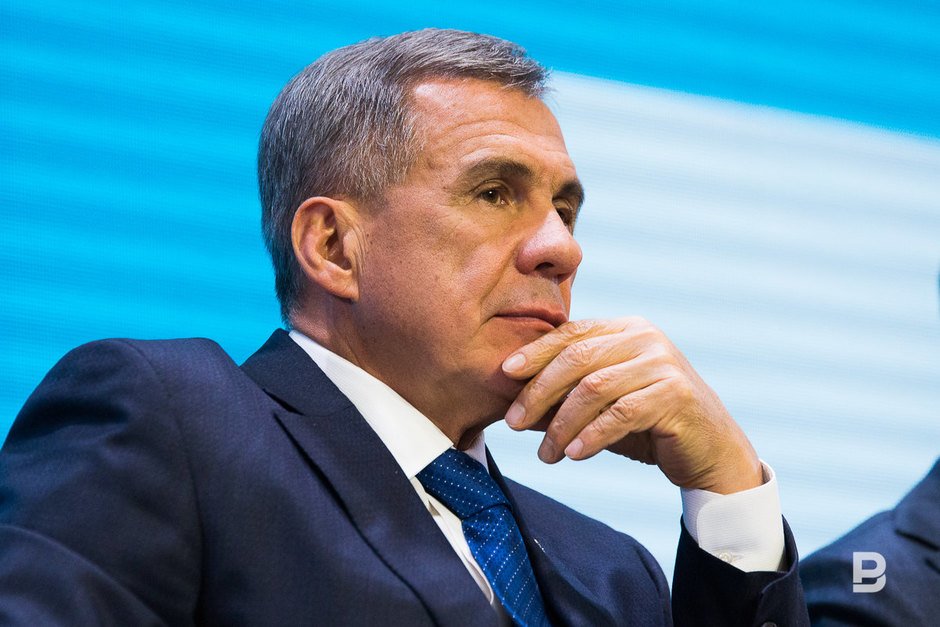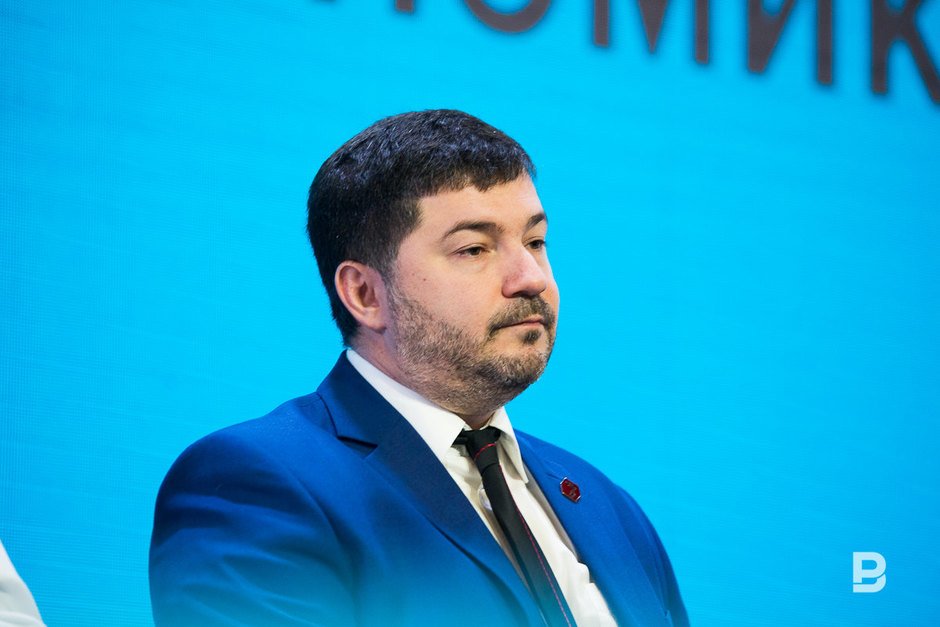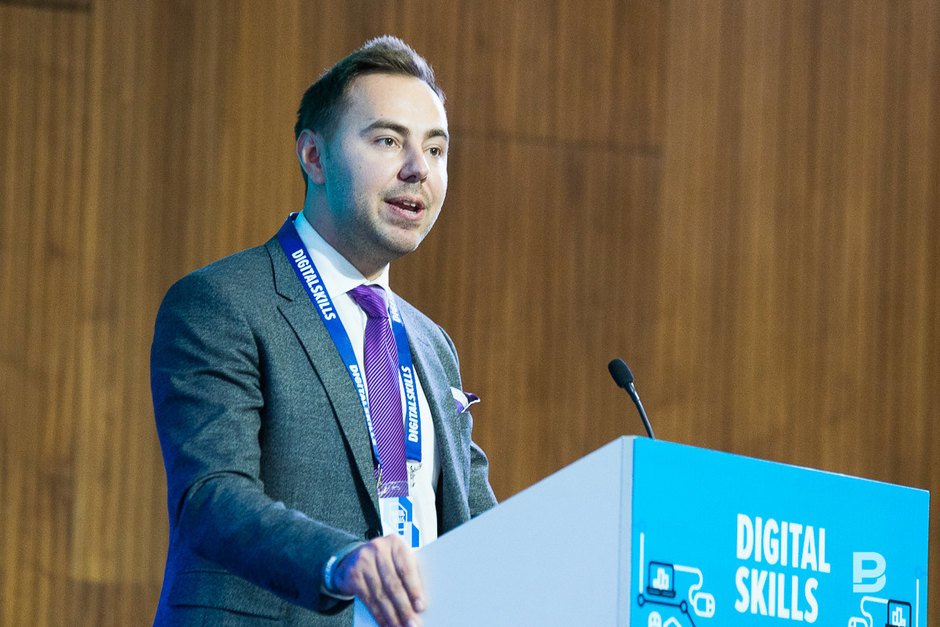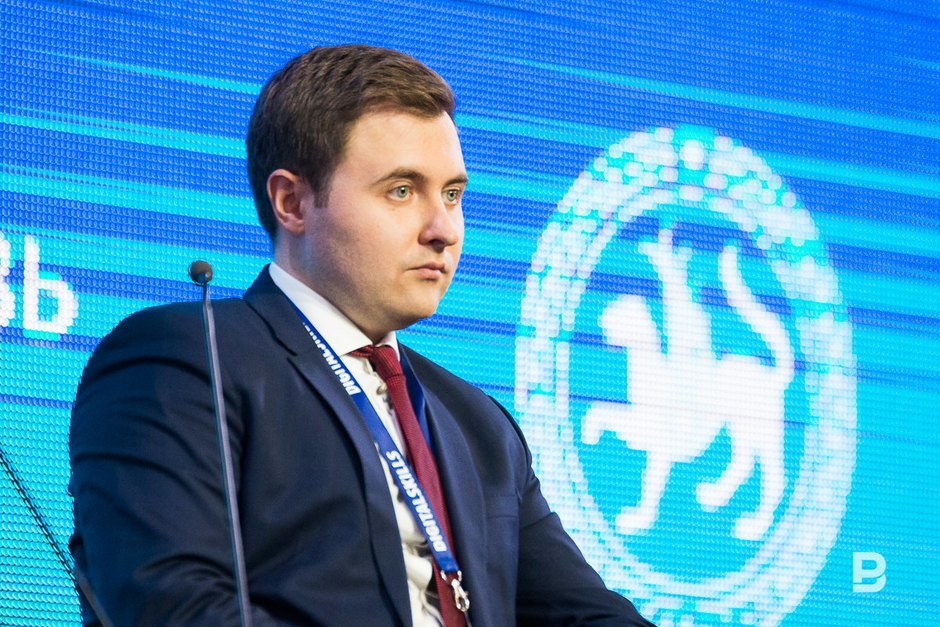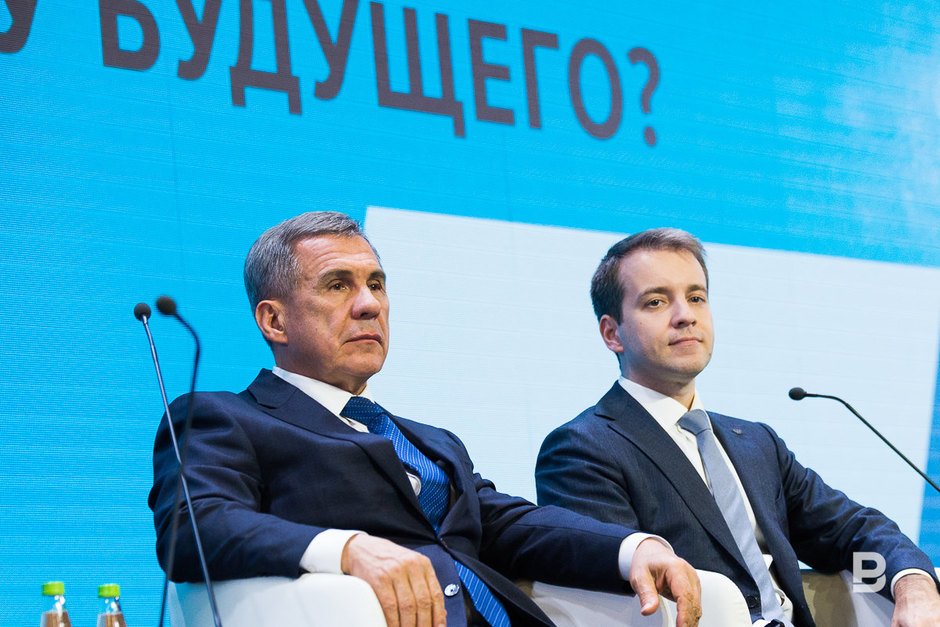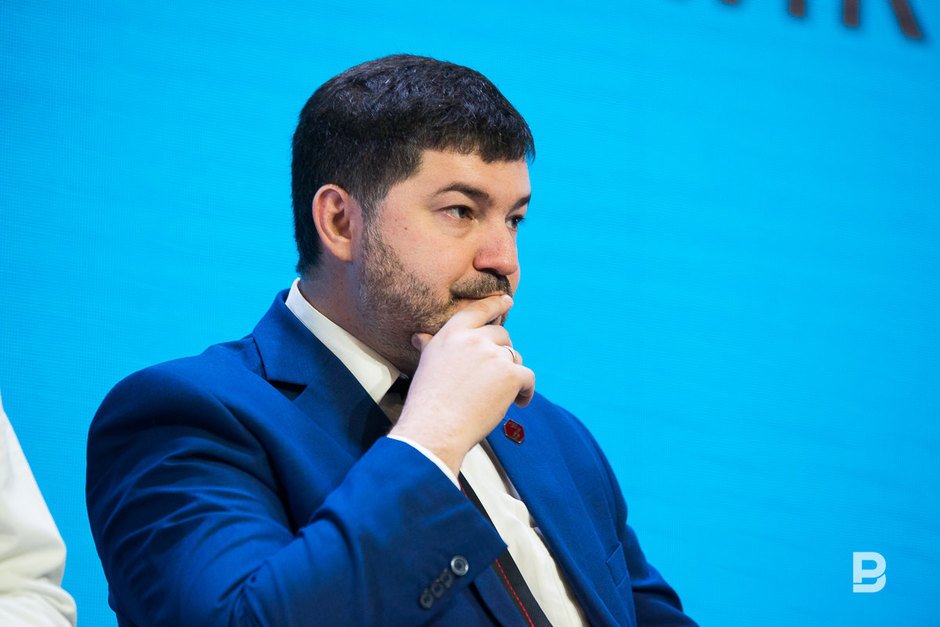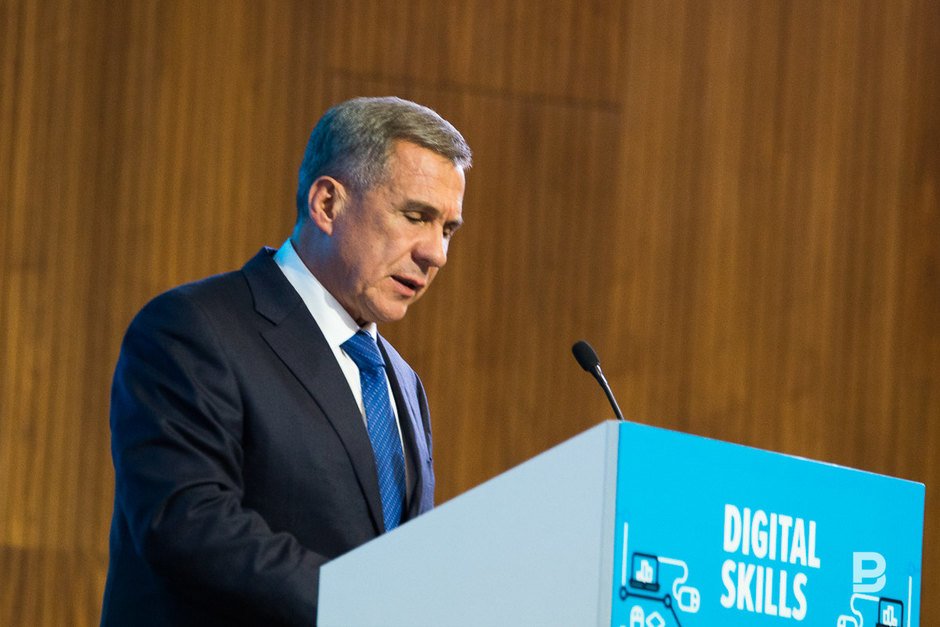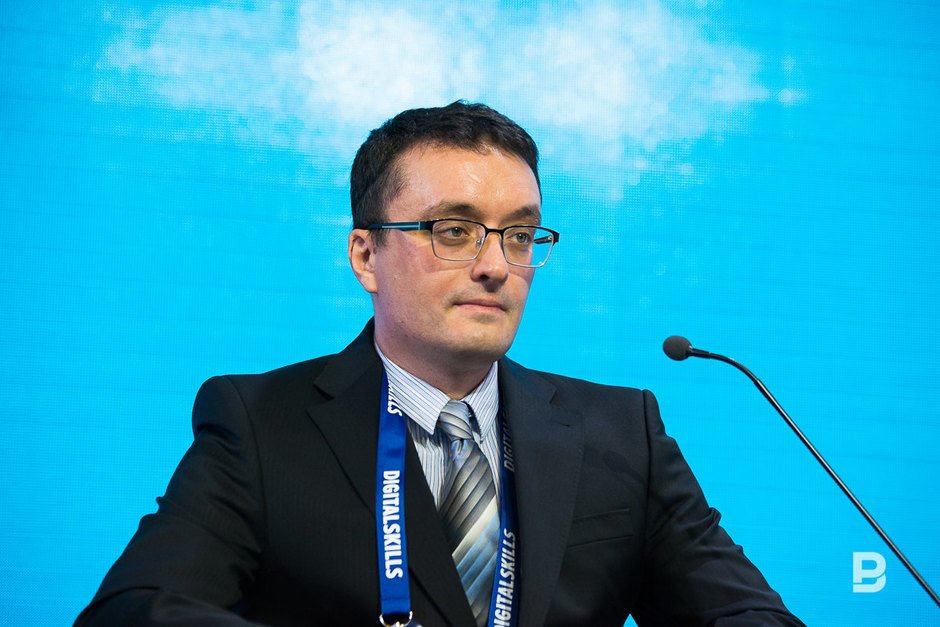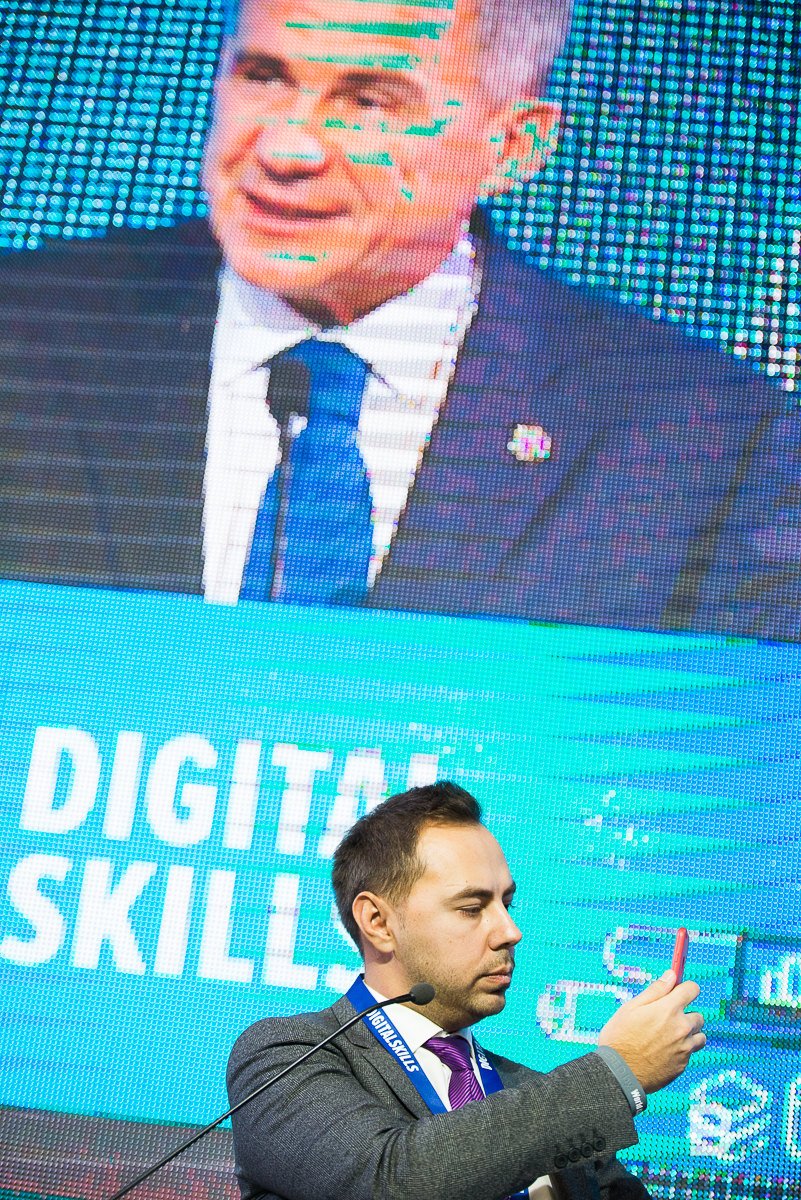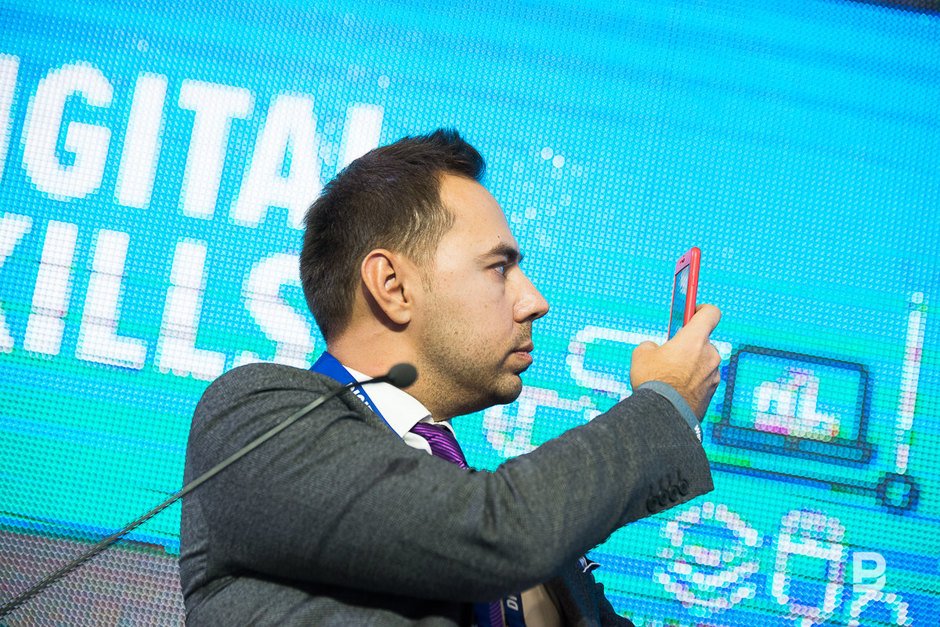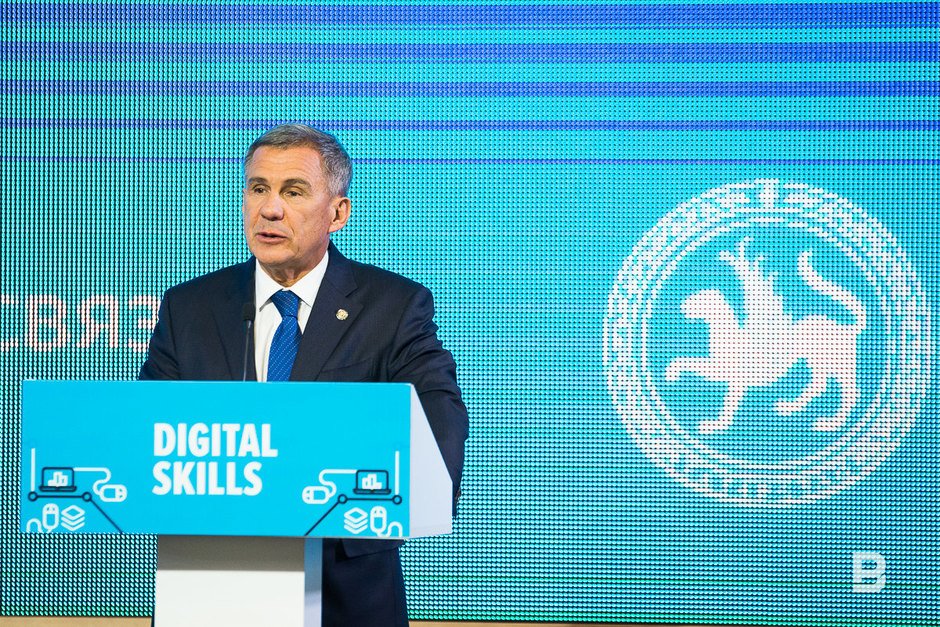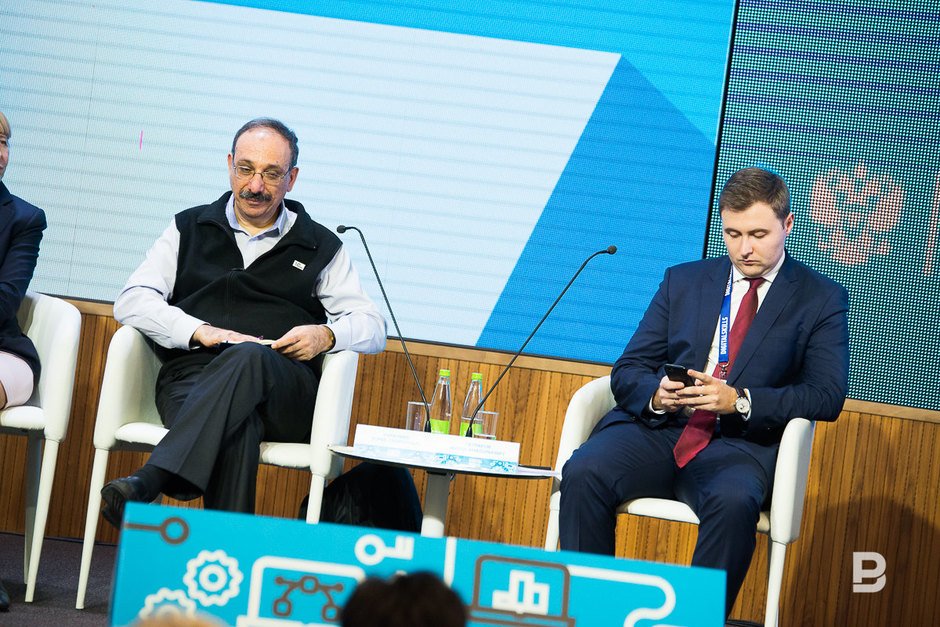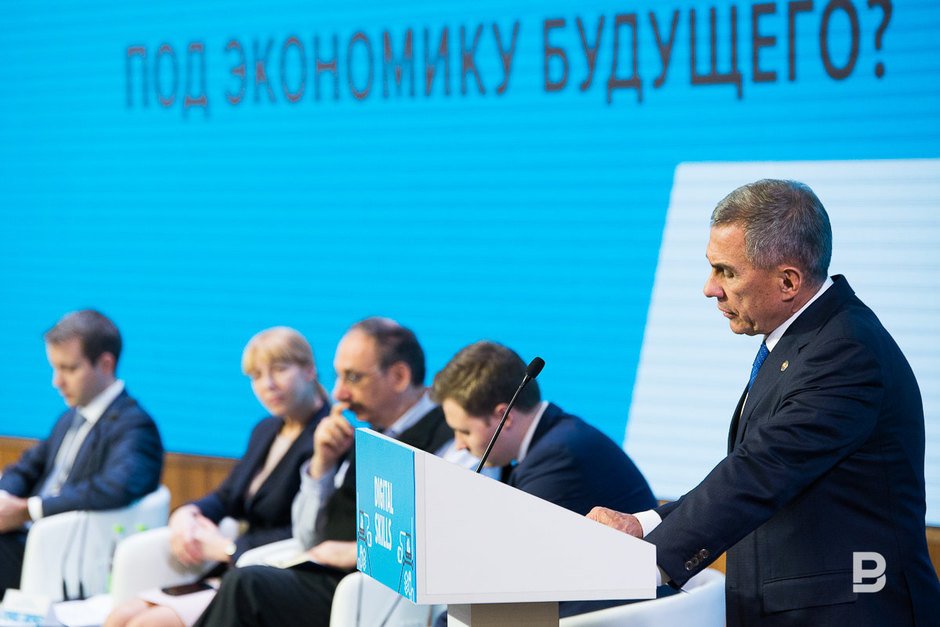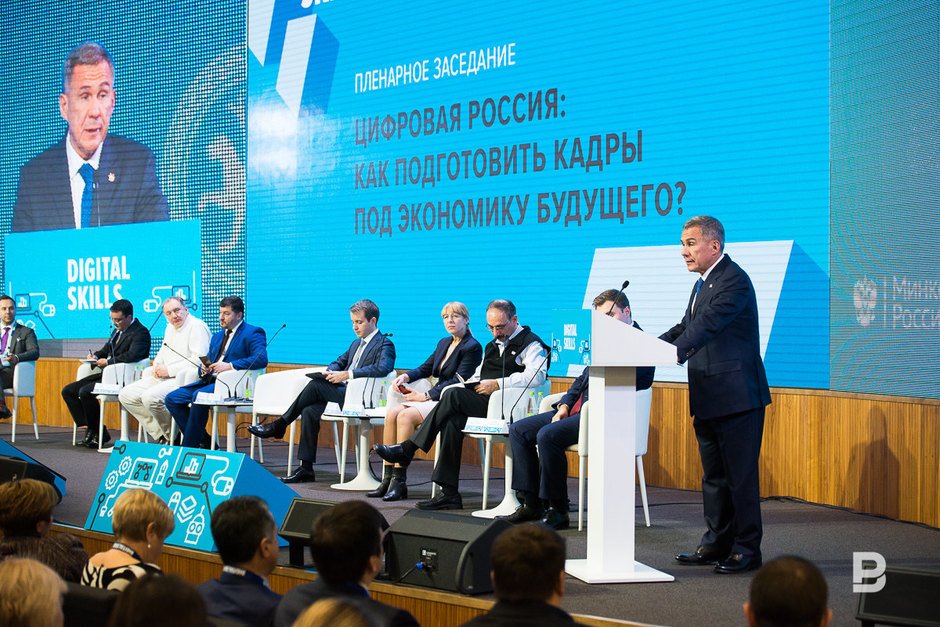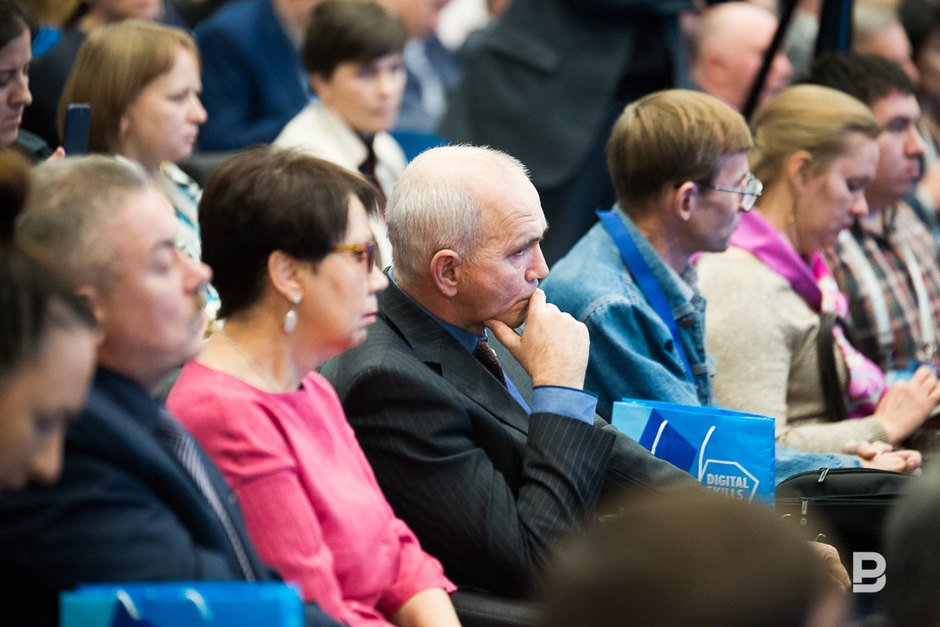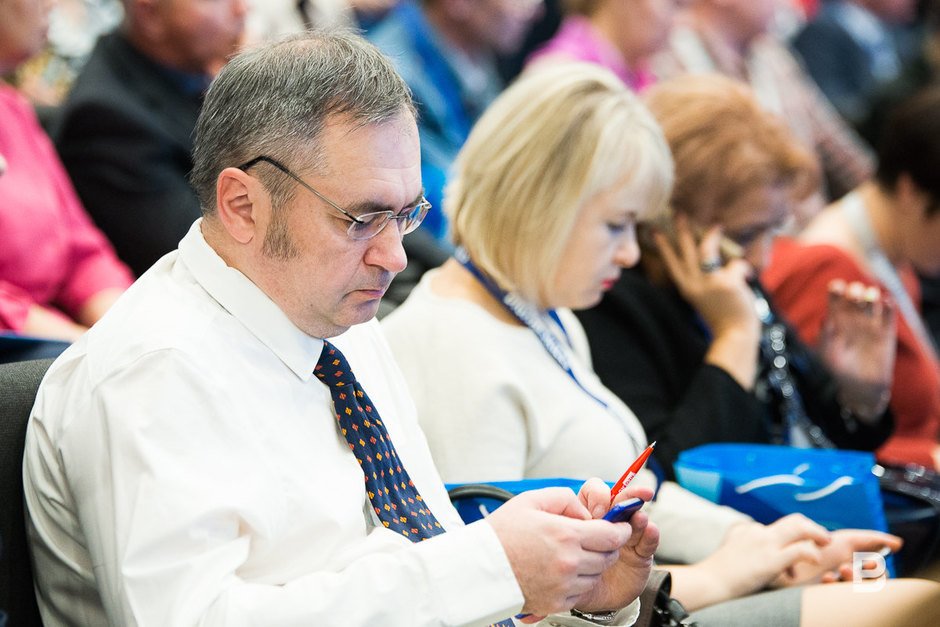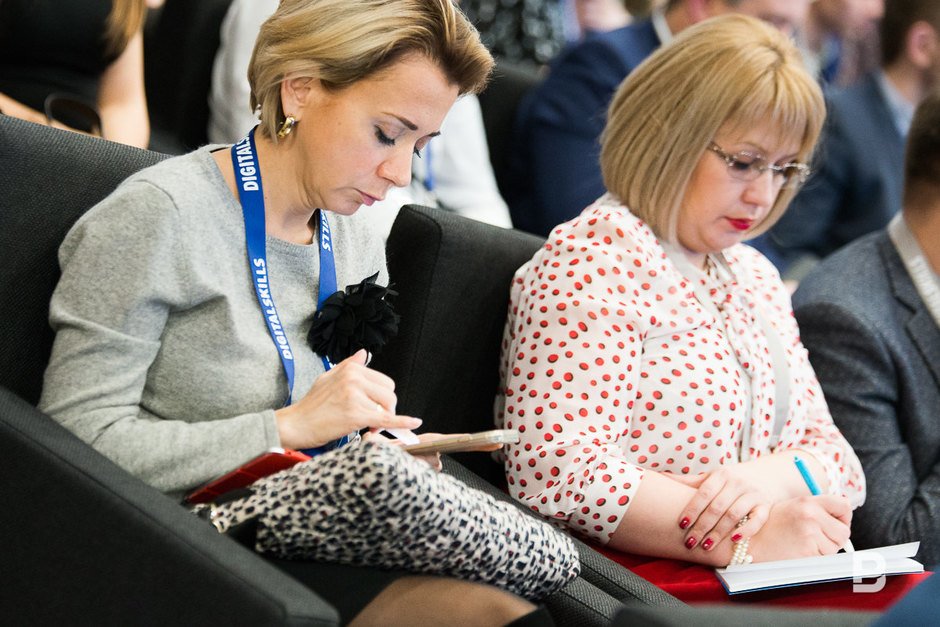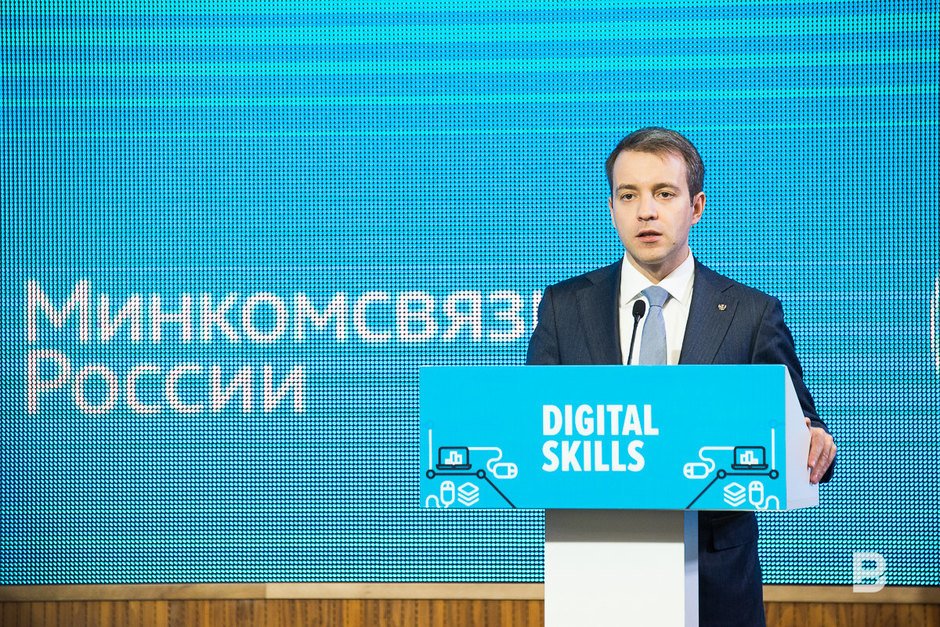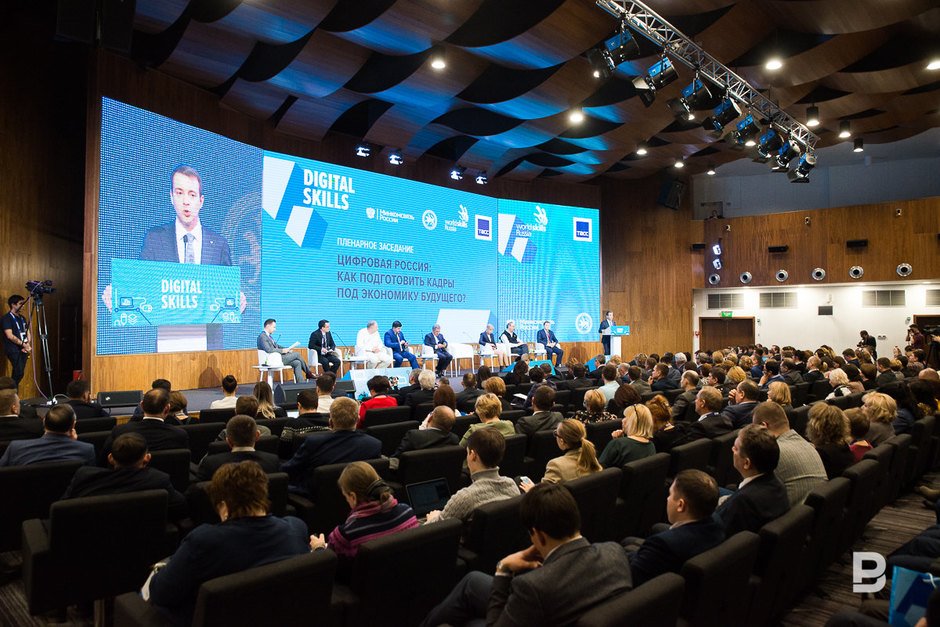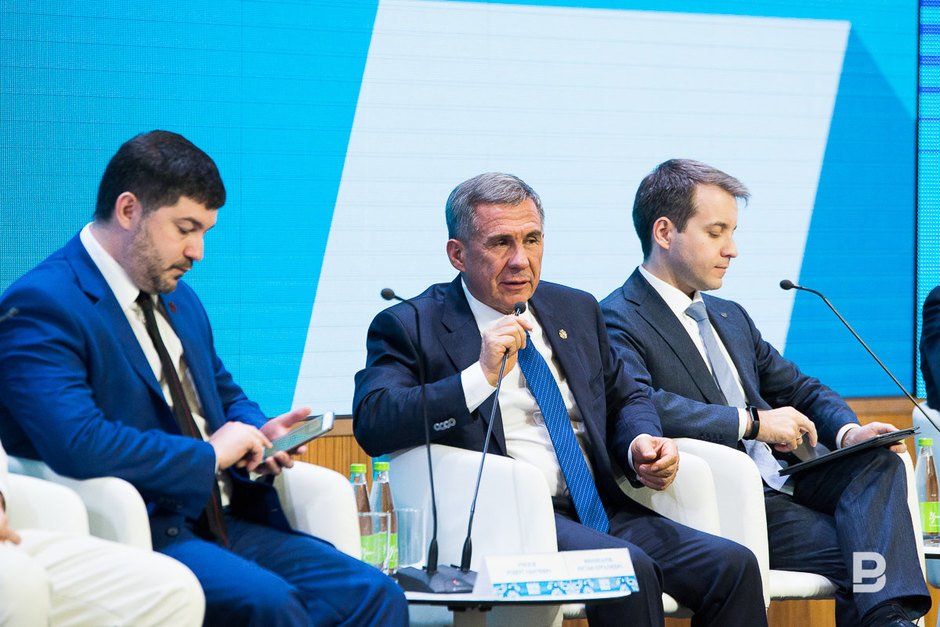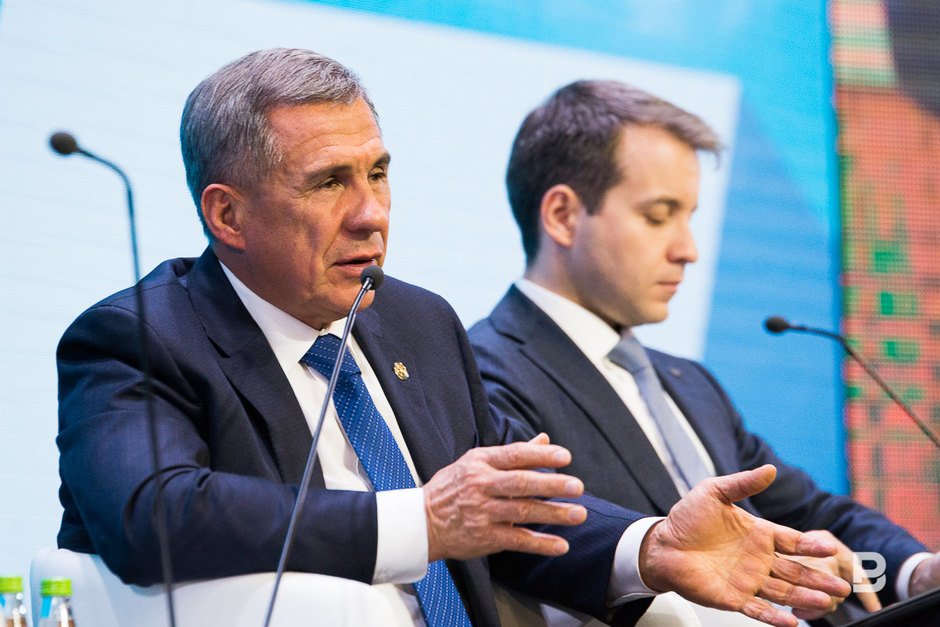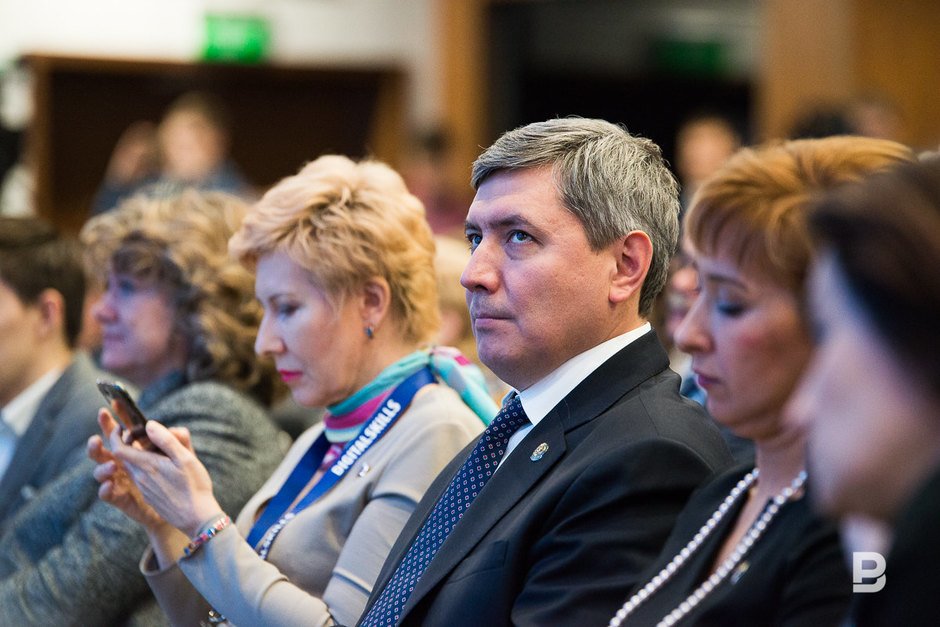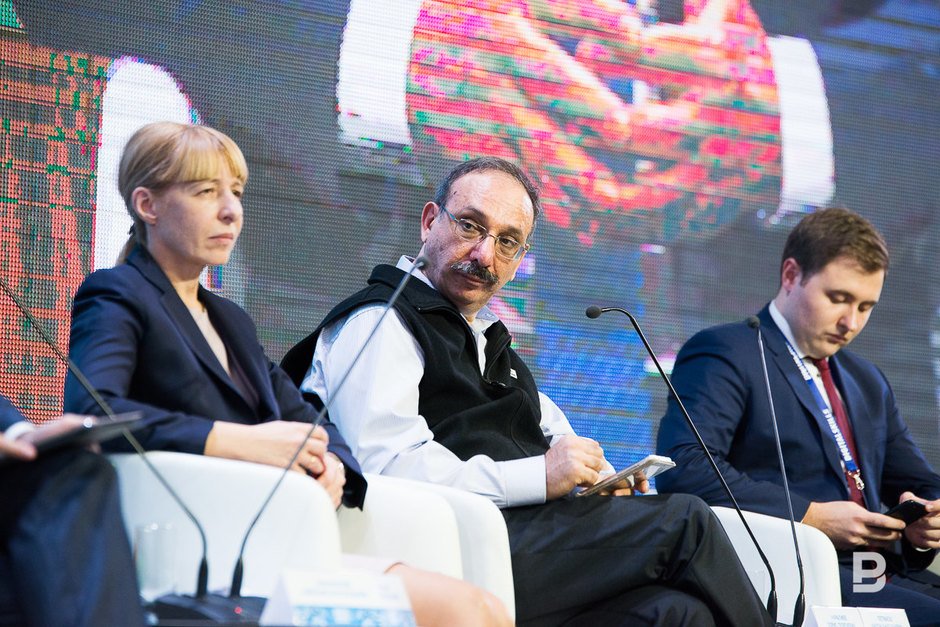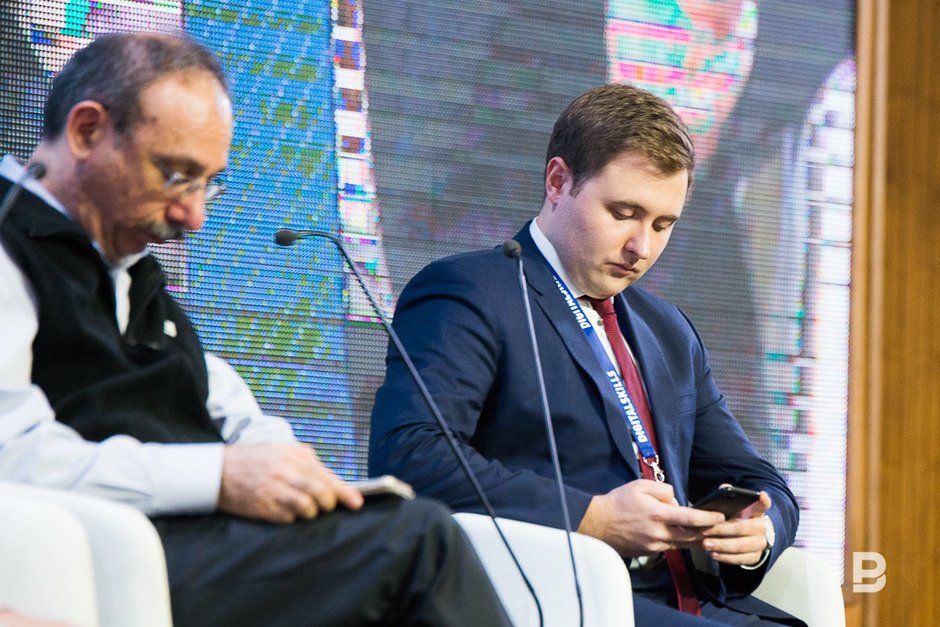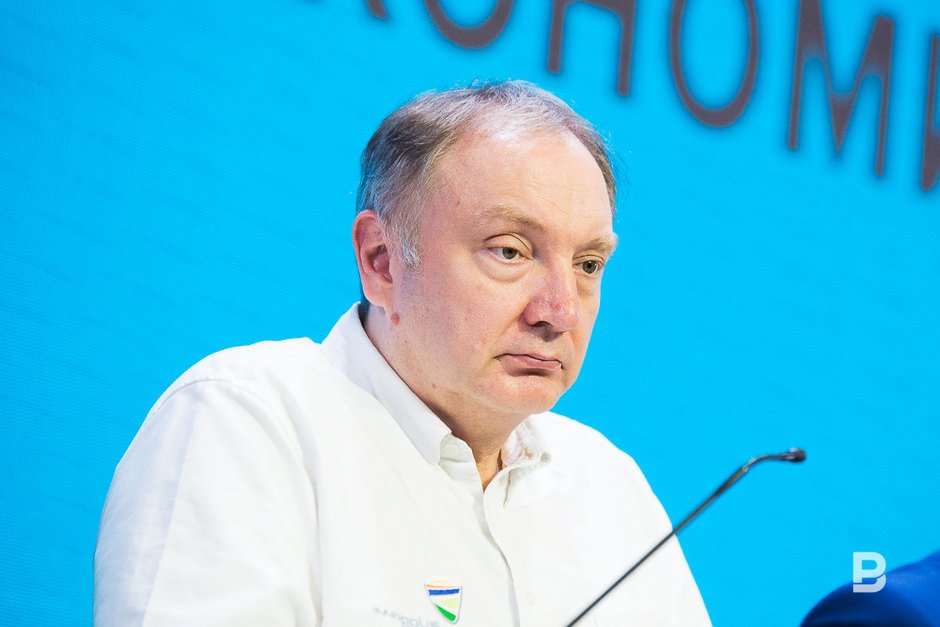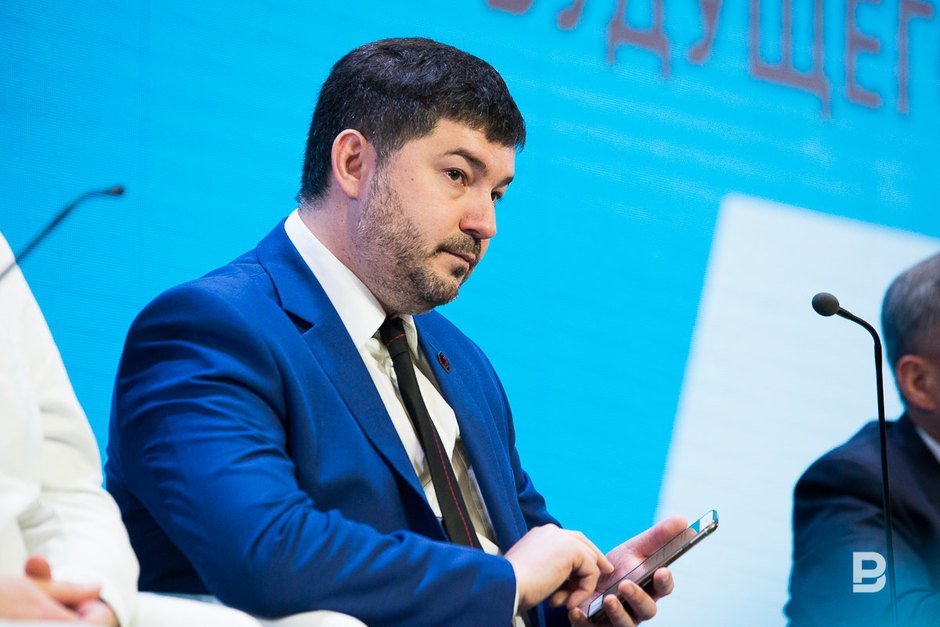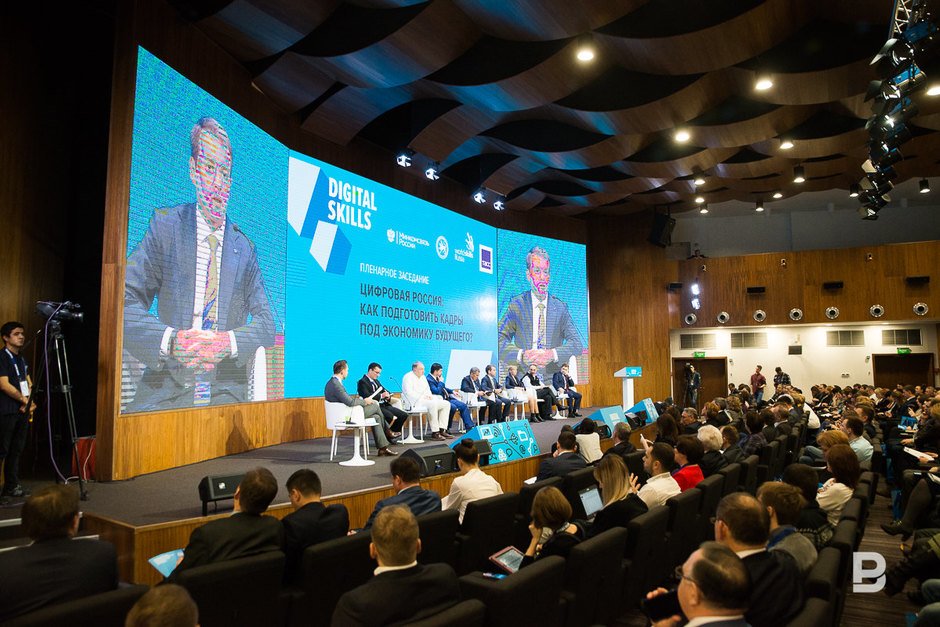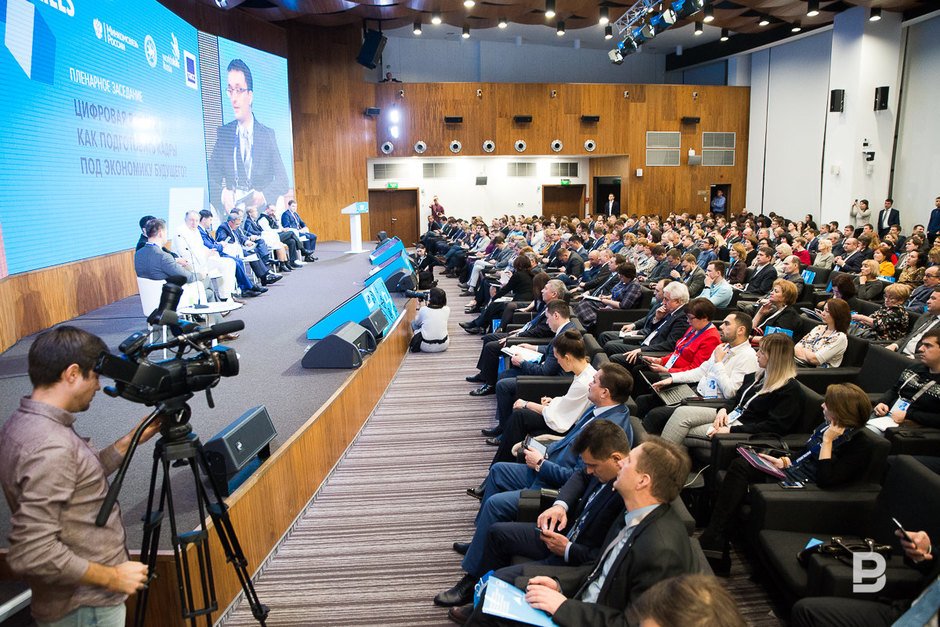Boris Nuraliyev, 1С: ''If you find at least one unemployed programmer, I’m ready to pay a bonus''
Power and business discussed preparation of personnel for the economy of the future in Innopolis
A sectoral IT championship DigitalSkills began in Innopolis on 11 December. A plenary session was held during the opening whose participants — representatives of power and big Russian IT companies – discussed the problem of preparation of personnel for the economy of the future. Realnoe Vremya tells how much it will take for Russia to construct a 'digital empire', the price for an IT specialist at the level of Yandex and whether our specialists are really hunted by such foreign IT giants as Google and Microsoft.
''I calculated the value of one IT specialist at the level of Yandex…''
The first sectoral WorldSkills championship in IT DigitalSkills started in Innopolis, which, by the way, was 5 years on 11 December that Tatarstan President Rustam Minnikhanov and Russian Minister of Communications Nikolay Nikiforov warmly congratulated it on. The competition will become one of the tools to prepare IT specialists in the digitalisation of the Russian economy.
''During this competition, we will improve our own skills and, of course, prepare for the event in 2019 [WorldSkills Kazan]. It's especially pleasant that colleagues from other countries joined us here – I know that teams from Iran and SAR are present here. We also welcome participants from tens of Russian regions. I'm convinced that development of the digital economy is impossible without qualified personnel – personnel decide everything,'' Nikolay Nikiforov delivered his welcome speech.
Right after the opening ceremony that took place at Innopolis University, the high-ranking guests headed for the Popov Technopark to discuss the problem of personnel preparation in order to construct a 'digital empire' in Russia.
''Personnel preparation for the digital economy is topical as never before – the world is changing, large-scale transformations are taking place and requirements for specialists are growing at the same time,'' Rustam Minnikhanov said. ''Tatarstan is oriented to innovative development of the economy. 10 universities prepare human resources for this sector now – about 1,400 specialists a year, vocational educational establishments give about 700 graduates. A big job is done to consolidate our programmers, so that they will not go, we try to employ them inside the republic.''
Russian Minister of Communications Nikolay Nikiforov, in turn, found quite a curious way of defining the value of IT specialists in modern conditions by putting an example of a Russian technology giant – Yandex: ''I'd like to inform you that today the capitalisation of Yandex is about $13 billion. It's an example of a completely digital company that doesn't have traditional production factors – no factories, machine tools and land parcels. It is a new essence. About 6,200 employees work in the company with a $13 billion capitalisation. I calculated that the value of one IT specialist at the level of Yandex is equal to $2,1 billion.''
''Nobody knows that answer to the question how to prepare the personnel for the economy of the future''
It should be admitted the country has an uneasy task: the population of the Russian Federation is almost 147 million people, and 40% must have digital skills by 2024. But how to teach 55 million people digital literacy and where? What human resources will create digital Russia? What does the educational model that is able to prepare professionals for the needs of the digital economy should look like?
''Nobody knows that answer to the question how to prepare the personnel for the economy of the future. We will be able to constantly correct the movement to this goal only together, by cooperating,'' Nikolay Nikiforov expressed his opinion. ''Let's formulate our ideas during our event. It will be a kind of homework for us, so that we will send the regulation for development as soon as possible. We have political support for this.''
Director General of WorldSkills Russia Union Robert Urazov also claimed we didn't have ready solutions to accomplish goals on personnel preparation now. However, he specified DigitalSkills competition was quite able to help 42% of the country's population have digital skills in 5 years.
A partner general of the chain of classes of educational robotics League of Robots and technological entrepreneurship KinderMBA Pavel Baskir gave a clearer answer to the question how to prepare specialists for the digital economy. He drew the attention of the session participants to the fact that schoolchildren were going to account for about a half of the 55 million, that's to say, people who are already in the digital world.
''Most important task is to help them and make digital approaches to digital education. It's also important not to frighten our adults with the digital future – they often try to pull kids back from this future. In this context, it's important to have a positive agenda: robots are for the good, digitalisation is not only a 'big brother' but also useful information. It's also important to deliver the things we're talking about – some regulations, the very digitalisation programme – to our kids in an understandable language,'' Baskir said.
Rector of University of Innopolis Aleksandr Tormasov also exchanged useful experience that can be used to make decisions on personnel preparation, he compared Innopolis with mini-Russia: ''The project of Innopolis will also require a greater number of specialists of different levels. As a university, we need to produce specialists. But as the growth of Innopolis is higher than the ability of instantaneous production of specialists, we retrain personnel. We also massively invite specialists from abroad.''
''We rarely try to hire a student of an American university – ours prepare specialists much better''
In the backstage, Realnoe Vremya's reporter talked to another participant of the plenary session – Director General of 1C Boris Nuraliyev.
Mr Nuraliyev, some market players claim that Russia traditionally generates very good IT specialists. However, there aren't comfortable conditions and support for their development, due to which they have to not to exercise their profession or leave the country if there is such an opportunity. Are you seeing such a tendency? How would you personally evaluate the competitiveness of our specialists?
Firstly, specialists are in a high demand. If you find at least one unemployed programmer among your acquaintances, I'm ready to pay a bonus. The demand is high as well as in many other countries. Plus, an average salary in IT is twofold higher in the country and much higher for top specialities.
Indeed, there are many wishes to improve the quality of education. But at the same time, its level in Russia is noticeably higher than in other countries (our education is sometimes better in same America). For this reason, many leading American corporations — Google, Microsoft, Apple – deliberately hunt for our students. We less try to hire a student of an American university – ours prepare specialists much better.
Is there a drain?
There is really a problem that part of the guys goes. But quite many talented specialists stay here. In general, the Russian economy doesn't grow as fast as we'd like. But right this sector, on the one hand, is backed up by the country quite well: look, the president of the republic and the Russia minister are delivering speeches at the event that is dedicated to the preparation of IT specialists, not the opening of an oil well or a big bridge over a river. On the other hand, successes in this sphere are much better than in many other sectors. This sector is relatively favourable in terms of both growth paces and profitability level.
Many leading American corporations — Google, Microsoft, Apple – deliberately hunt for our students. We rarely try to hire a student of an American university – ours prepare specialists much better
Do you think that Russia will take much time to construct the 'digital empire'? Won't we fall behind other countries due to not the most favourable economic situation?
From a perspective of engineering, we are unlikely to fall behind. As for sales volume, yes, of course. Now Russia has signs of moving faster than other countries, we will wait and see what will happens then. At this moment, the country has made a serious statement: on PIEF, the president of Russia announced digitalisation was for us the main issue, though he might have given different focuses and said that higher defensive capacity was a priority. We — both the country and business — will try, and then… The chances are good, but nobody will bet.
